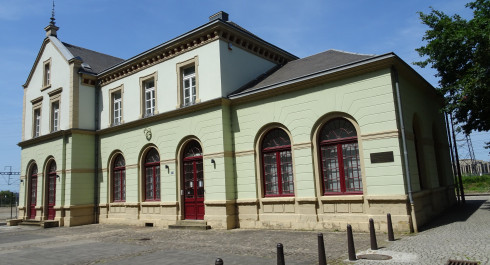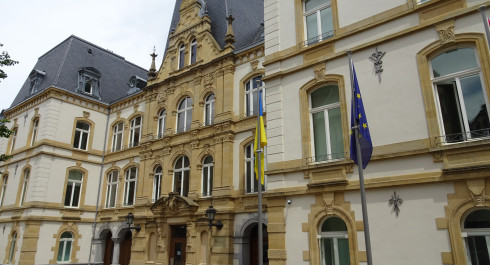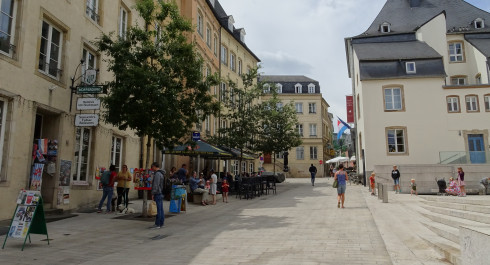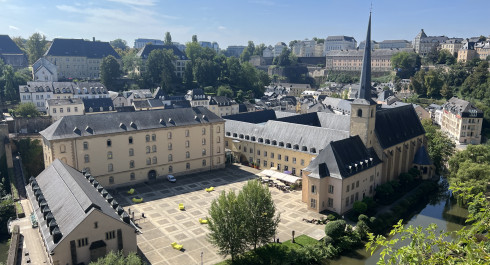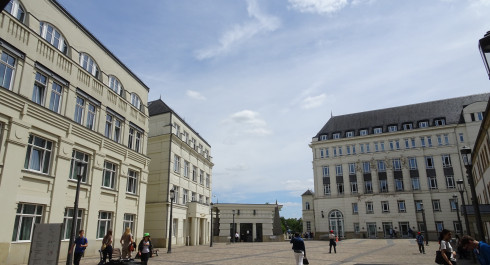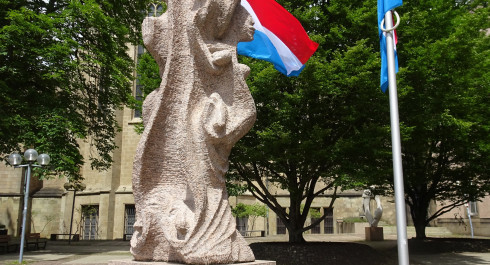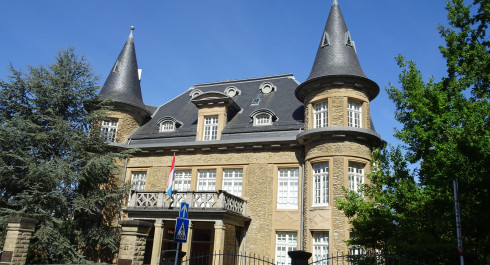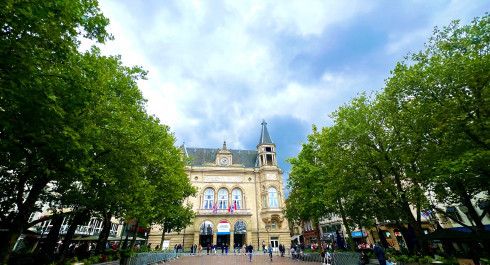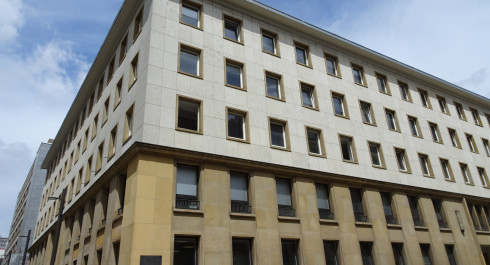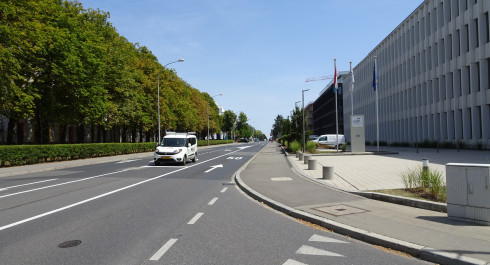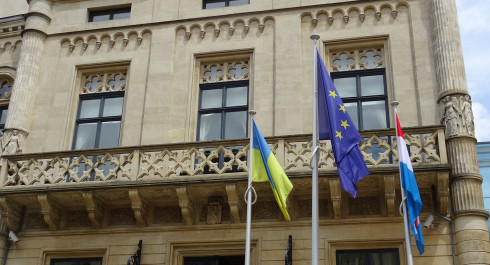
6. Chamber of Deputies
6. Chamber of Deputies
When walking along the ‘Krautmarkt’ (Marché aux Herbes), you may have trouble noticing the Chamber of Deputies next to the imposing Grand Ducal palace as it seems very small and modest in comparison with its impressive neighbour.
And yet it is one of the most important locations in Luxembourg as this is the seat of the Luxembourg parliament, the Chamber of Deputies. This political body has the legal power to pass laws in the name of the people. The parliament building is therefore referred to as the ‘Palace of the Nation’ (Palais de la Nation) and stands responsible for the rights of the people of Luxembourg. As it is joined to the Grand Ducal palace, it becomes evident that the relationship between the Legislative and Executive is reflected in the architecture. This explains why the location has been retained up to the present even though the building has become much too small. More ample office space for administrative purposes has had to be found in surrounding former townhouses.
The building was built in 1858 and displays an eclectic combination of styles: Neo Gothic, Renaissance and Classicism. The location was not chosen by chance but was in fact a clever move by the ruling authoritarian King Wilhelm III. His demand for the Parliament building to be more modest in size than the neighbouring Grand-Ducal palace was meant to clearly reflect the balance of power, namely that the executive was positioned above the legislative branch and was thus in control.
The Luxembourg Parliament building, known as the ‘Chamber’, has had its seat at this location since 1860. However, it was not always a political entity meant to represent the interests of the people. Its changeable history began in the Middle Ages as the ‘States of Duchy’ (États du Duché), a council of advisors assembled to support and advise the ruler.
It was only in 1848 and after threats of revolution that the liberal-minded King Wilhelm II agreed for Luxembourg to acquire a constitution on which the present democratic Luxembourg state is based. Since then, the members of the Chamber of Deputies have been elected by the people and the three powers, executive, legislative and judicial, became clearly separated in order to protect the people from possible arbitrary decisions and the danger of despotism. However, census voting rights were the norm until 1919. This modern-day constitution was re-confirmed in 1968 and is legally binding up to the present, thus ending the era of absolutist rule/power: Since then, Luxembourg has been a constitutional parliamentary Monarchy.
Since 1988, sixty members compose the parliament, elected every five years in a secret ballot by the people in free general elections. Most sessions of Parliament are open to the public and are broadcast live on the ‘Chamber TV’ Channel and Internet site ‘www.chd.lu/en’ to guarantee complete political transparency.
Interesting Detail
Since 1868, the constitution has been changed and adapted to political developments. As a result, the political prerogatives of the monarch have been increasingly reduced. In 1919, the power of the state was transferred to the people. The sovereign relinquished henceforth any intervention in the political decisions which have been exclusively the right of the Chamber of Deputies or the government.
Significance for Human Rights
As the law giving institution, the Chamber of Deputies’ fundamental function is to protect Human Rights. The Members of Parliament are elected by the people to represent the interests of the nation’s citizens and to pass laws to improve their lives. These laws must be conceived in the respect of the Declaration of Human Rights. In addition, the Members of Parliament have the right to check Government decisions to ensure a maximum of protection and security for citizens. The continued mutual checks and control between the executive and legislative branches of parliament will protect Luxembourg citizens from an inhuman dictatorship.
Article 21
The will of the people shall be the basis of the authority of government.


